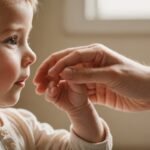You might be surprised to learn that your parenting style isn't entirely your own choice—it's often shaped by a complex web of cultural, social, and economic factors you've inherited or absorbed over time. Whether you've adopted an authoritative approach like many Western parents or embrace a more collective style common in Asian cultures, your parenting decisions reflect broader patterns in society. Understanding how these styles distribute across different populations can help you recognize your own parenting tendencies and their origins. As we explore the various factors that influence parenting approaches, you'll discover why certain styles predominate in specific communities and what that means for child development.
Key Takeaways
- Authoritative parenting is most prevalent in Western societies, emphasizing both high emotional responsiveness and clear behavioral expectations.
- Socioeconomic status significantly influences parenting style distribution, with higher-income families more likely to adopt authoritative approaches.
- Cultural background shapes distribution patterns, with Asian cultures showing higher rates of authoritarian parenting styles.
- Modern urban environments tend toward more permissive styles, while rural communities often maintain traditional authoritarian approaches.
- Educational level correlates with parenting style choice, with higher education typically associated with more authoritative parenting practices.
Classical Parenting Style Categories
The classical framework of parenting styles, developed by psychologist Diana Baumrind in the 1960s and later expanded by Maccoby and Martin, identifies four distinct approaches to child-rearing: authoritative, authoritarian, permissive, and uninvolved.
When you're exploring these classic styles, you'll find they're based on two key parenting dimensions: responsiveness (warmth and supportiveness) and demandingness (control and expectations).
You'll recognize authoritative parents by their high scores in both dimensions, creating a balanced approach that combines nurturing with clear boundaries. In contrast, you'll see authoritarian parents showing high demandingness but low responsiveness, often prioritizing obedience over emotional connection.
You'll notice permissive parents display the opposite pattern, scoring high on responsiveness but low on demandingness, typically avoiding confrontation and setting few rules.
The uninvolved style, which you'll find characterized by low scores in both dimensions, represents a hands-off approach with minimal engagement in either emotional support or boundary-setting.
Each of these parenting styles greatly influences your child's developmental outcomes, from emotional regulation to academic achievement.
Global Cultural Variations

Across diverse global cultures, traditional Western parenting style categories don't always accurately reflect local child-rearing practices and values. You'll find that cultural norms heavily influence how parents interact with their children, creating unique hybrid approaches that challenge standard classifications.
In collectivist societies, you'll notice parenting beliefs that emphasize group harmony and interdependence, which can appear authoritarian by Western standards but serve different cultural purposes. For instance, in many Asian cultures, parents might exercise strict control over academic matters while showing warmth in family settings.
Similarly, in African communities, you'll observe shared parenting responsibilities across extended families, creating multiple authority figures and nurturing relationships.
Mediterranean cultures often display what you'd recognize as permissive traits, yet their approach typically includes strong family bonds and emotional expressiveness that don't fit neatly into Western categories.
In Nordic countries, you'll find parenting styles that prioritize children's autonomy earlier than most cultures, while maintaining clear boundaries and expectations.
These variations demonstrate how cultural context shapes parenting approaches, making it essential to reflect on local values and traditions when understanding global parenting styles.
Socioeconomic Factors

In light of recent research, socioeconomic conditions greatly shape parenting approaches and available resources for child-rearing.
You'll find that income inequality and employment stability often determine your access to essential parenting resources, from quality childcare to educational opportunities. Family structure and neighborhood safety markedly influence the daily decisions you'll make as a parent, impacting your children's developmental outcomes.
Your educational attainment and cultural capital play vital roles in how you'll navigate parenting challenges and build community support networks. These factors directly affect your ability to advocate for your children and access valuable resources within your community.
Key socioeconomic factors affecting parenting styles include:
- Access to healthcare and nutrition, which creates notable health disparities between different income groups
- Quality of educational resources and extracurricular activities available in your neighborhood
- Time availability for parent-child interaction, often determined by work schedules and economic pressures
Understanding these socioeconomic influences can help you recognize how social mobility impacts your parenting choices and identify areas where you might need additional support or resources to overcome systemic barriers.
Modern Parenting Style Spectrum

As you explore modern parenting approaches, you'll find a spectrum ranging from highly structured authoritative methods to more relaxed permissive styles, each with distinct impacts on child development.
Your cultural background greatly influences which parenting style you might naturally adopt, with Western societies often favoring authoritative approaches while many Eastern cultures traditionally embrace more collective, family-oriented methods.
Research indicates that understanding these different approaches helps you make informed decisions about which elements to incorporate into your parenting strategy, as both authoritative and permissive styles can offer valuable tools when appropriately balanced.
Authoritative Versus Permissive Approaches
Between authoritative and permissive parenting styles lies a spectrum of modern approaches that shape children's development in distinct ways. When you're choosing your parenting approach, understanding the authoritative benefits and permissive drawbacks becomes essential for making informed decisions about your child's upbringing.
Research consistently shows that authoritative parenting produces better outcomes regarding emotional regulation, academic performance, and social competence. You'll find that setting clear boundaries while maintaining warmth helps your child develop self-discipline and confidence.
In contrast, permissive approaches, while creating a loving environment, often lack the structure children need for ideal development.
Key differences between these approaches include:
- Decision-making process: Authoritative parents guide choices while permissive parents let children lead
- Boundary setting: Authoritative parents establish consistent rules while permissive parents set few limits
- Consequence management: Authoritative parents implement logical consequences while permissive parents often avoid confrontation
You'll notice that finding your place on this spectrum isn't about choosing extremes, but rather about balancing structure with emotional support. The most effective approach often combines authoritative elements with flexibility, adapting to your child's unique needs while maintaining consistent guidelines.
Cultural Impact on Parenting
Cultural diversity shapes how parents interpret and apply different parenting styles across the globe. You'll find that cultural traditions greatly influence the way families approach child-rearing, from disciplinary methods to expectations about independence and achievement.
In collectivist societies, you'll notice parents often emphasize group harmony, respect for authority, and interdependence. Your parenting beliefs might reflect these values through extended family involvement and stronger emphasis on obedience.
In contrast, if you're raising children in individualistic cultures, you're more likely to prioritize self-reliance, personal achievement, and autonomous decision-making.
You'll discover that what's considered ideal parenting in one culture may be viewed differently in another. For instance, while Western societies typically favor authoritative parenting with open dialogue and negotiation, many Asian cultures traditionally value stricter hierarchical relationships between parents and children.
Your cultural background shapes these expectations, influencing how you interpret children's behavior and respond to their needs. Understanding these differences helps you recognize that effective parenting isn't universal but rather deeply rooted in cultural context and community values.
Research Methods and Data

Over the past five decades, researchers have employed diverse methodological approaches to study parenting styles and their impact on child development. You'll find that both qualitative analysis and quantitative surveys have played essential roles in understanding how parents interact with their children across different contexts and cultures.
When you're examining parenting research methods, you'll notice these core approaches:
- Observational Studies: Scientists directly observe parent-child interactions in natural settings, recording behavioral patterns and communication styles.
- Longitudinal Research: Researchers track families over extended periods, often spanning years or decades, to understand how parenting styles influence long-term outcomes.
- Cross-sectional Surveys: Teams collect data from large populations at specific points in time, helping identify patterns across different demographic groups.
You'll discover that modern research increasingly combines multiple methods to create a more thorough understanding.
For instance, when researchers pair observational data with survey responses, they're able to validate their findings and address potential biases. This mixed-method approach has revolutionized our understanding of how parenting styles evolve and impact child development across different contexts.
Generational Shifts in Parenting

When you examine parenting across generations, you'll notice a stark contrast between traditional authoritarian methods and today's more collaborative approaches.
Your modern parenting experience likely incorporates technology-based monitoring, digital learning tools, and social media awareness – elements that weren't relevant to previous generations.
These shifts reflect broader societal changes, as research shows millennial and Gen Z parents prioritize emotional intelligence and open communication more than their Baby Boomer counterparts did.
Modern Vs Traditional Approaches
Throughout the past several decades, parenting approaches have undergone significant transformations in response to evolving social norms, research findings, and technological advances.
Traditional parenting philosophies often emphasized strict discipline, hierarchical family structures, and unwavering adherence to cultural norms. In contrast, modern approaches tend to prioritize open communication, emotional intelligence, and collaborative problem-solving.
You'll notice these key differences between modern and traditional approaches:
- Communication Style: Traditional methods relied on top-down directives, while modern parenting emphasizes two-way dialogue and active listening.
- Discipline Techniques: Physical punishment and strict consequences have largely given way to positive reinforcement and natural consequences.
- Child Development Understanding: Modern approaches incorporate research-based insights about brain development, emotional regulation, and individualized learning styles.
Today's parents often blend elements from both approaches, creating hybrid styles that reflect their values while acknowledging generational wisdom.
You're likely to find yourself maneuvering between time-tested traditional methods and evidence-based modern techniques, adapting your approach based on your child's unique needs and your family's circumstances.
This flexibility represents a significant shift from the rigid parenting frameworks of previous generations.
Digital Age Parent Evolution
The digital revolution has fundamentally reshaped how parents approach child-rearing in the 21st century. You'll find today's tech savvy parents maneuvering a landscape where digital communication and virtual parenting have become essential skills. Online communities now serve as modern support systems, replacing traditional neighborhood networks, while parenting apps offer real-time solutions for daily challenges.
| Digital Parenting Aspects | Traditional Methods | Modern Solutions |
|---|---|---|
| Learning Support | Physical books | Online education |
| Community Building | Local groups | Virtual networks |
| Child Monitoring | In-person observation | Digital resources |
The shift toward remote learning and increased screen time has forced you to develop new strategies for balancing digital engagement with offline activities. Social media influence has created both opportunities and challenges, requiring you to make informed decisions about your children's digital footprint. You're part of a generation that's redefining parenthood through technology, while maintaining core nurturing principles.
This evolution demands constant adaptation as you integrate digital tools into your parenting approach. The key lies in leveraging these technological advances while preserving meaningful parent-child connections in an increasingly virtual world.
Environmental and Social Influences

Multiple environmental and social factors shape parenting styles, from cultural expectations to socioeconomic conditions. You'll find that your community support networks and cultural traditions greatly influence how you raise your children. In many societies, you're expected to follow established parenting norms while adapting to modern challenges.
Research shows that your parenting approach is often shaped by these key environmental factors:
- Neighborhood characteristics and safety levels, which affect how much independence you grant your children.
- Access to resources and education, impacting your ability to provide enrichment opportunities.
- Social support systems, including extended family networks and community organizations.
You'll notice that your socioeconomic environment plays an essential role in determining your parenting decisions. When you're living in resource-rich areas, you're more likely to adopt authoritative parenting styles, while challenging environments might push you toward more protective approaches.
Your cultural background interacts with these environmental factors, creating unique parenting patterns that reflect both your heritage and current circumstances. Understanding these influences helps you make informed decisions about your parenting strategies while acknowledging the complex interplay between society and child-rearing practices.
Impact on Child Development

Parenting styles profoundly shape your child's emotional, social, and cognitive development through consistent patterns of interaction and response. When you practice authoritative parenting, you're creating secure attachment patterns that help your child develop trust and healthy emotional regulation skills. Your child learns to navigate relationships confidently while maintaining appropriate boundaries.
Your parenting approach directly influences how your child processes and expresses emotions. Research shows that children raised with consistent, warm, and responsive parenting develop stronger self-regulation abilities and higher emotional intelligence. They're better equipped to handle stress and maintain healthy relationships throughout life.
The impact extends beyond emotional development. Your parenting style affects your child's academic performance, social competence, and decision-making abilities.
Children who experience supportive, structured environments typically show higher levels of achievement and better problem-solving skills. When you balance nurturing with appropriate expectations, you're helping your child develop resilience and independence.
Understanding attachment theory helps you recognize how your daily interactions create lasting patterns in your child's psychological framework, affecting everything from self-esteem to future relationships.
Frequently Asked Questions
How Do Single Parents Adapt Their Parenting Style Compared to Couples?
When you're a single parent, you'll often need to be more flexible in your parenting approach.
You'll face unique single parent challenges that require adaptive strategies, like combining nurturing and disciplinary roles that couples typically share.
Research shows you might develop stronger communication skills with your children and become more resourceful in managing daily responsibilities.
You'll likely create more structured routines while maintaining closer emotional bonds to compensate for being the sole caregiver.
Can Parents Successfully Combine Different Parenting Styles Within the Same Household?
You can successfully combine different parenting styles through mixed methods, but it requires open communication and intentional style integration between caregivers.
Research shows that when you're thoughtful about blending approaches, children can benefit from experiencing diverse parenting perspectives.
The key is maintaining consistency in core values while allowing flexibility in day-to-day practices.
You'll find that establishing common ground on major decisions helps create a balanced, nurturing environment for your children.
Do Birth Order Differences Require Adjustments in Parenting Style?
Yes, you'll need to make parenting adjustments based on birth order, as each child's position in the family creates unique developmental needs.
Firstborns often thrive with clear structure, while middle children may need extra attention to build confidence.
Your youngest might benefit from increased independence-building opportunities.
Research shows that recognizing these birth order differences and adapting your approach helps each child develop their strengths while maintaining family harmony.
How Does Divorce Affect Consistency in Parenting Styles Between Separated Parents?
You'll feel like you're juggling flaming torches while walking on a tightrope when managing co-parenting challenges after divorce!
The key is establishing clear communication strategies with your ex-partner. You'll need to create consistent rules, routines, and disciplinary approaches across both households.
Research shows that children adapt better when you're both aligned in your parenting styles.
Try using shared digital calendars and parenting apps to maintain open dialogue and track important decisions together.
What Role Does Technology Use Play in Shaping Modern Parenting Styles?
Technology greatly shapes how you parent today through two key channels.
First, you'll need to manage your child's screen time, which impacts their development and family dynamics.
Second, digital communication tools change how you interact with and monitor your kids.
You're part of a generation of parents balancing traditional nurturing with digital boundaries.
Research shows your approach to technology integration directly influences your overall parenting style and child outcomes.
Conclusion
Diving into the ocean of parenting styles, you'll find that no single approach stands as a universal beacon. Scientific evidence points to authoritative parenting's prevalence in Western societies, yet you're witnessing a dynamic shift across generations and cultures. Like tributaries feeding into a river, socioeconomic factors and cultural values continue to shape these distributions. Understanding these patterns equips you with critical insights for supporting child development in today's diverse parenting landscape.








0 responses to “Understanding Parenting Style Distribution”